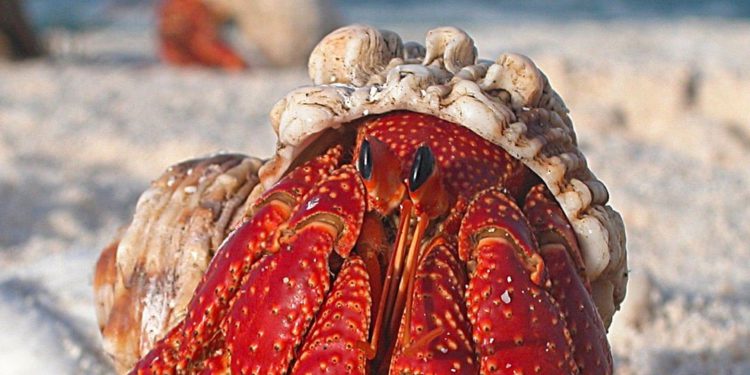Rules around the humane killing of lobsters, crabs and octopuses are expected to change, as the UK government acknowledges them as sentient beings.
High profile chefs including Raymond Blanc have advocated for some time for the professional stunning and slaughter of large crustaceans, saying it’s “an important advance from an ethical point of view, and enhances texture and flavour”.
Campaigners say a code of practice should be introduced, requiring that crustaceans are killed by trained and licensed professionals in accordance with legally enforceable guidelines.
The authors of a report behind the government’s move wrote, “There is no slaughter method for cephalopods (octopuses, squid and cuttlefish) that is both humane and commercially viable on a large scale.
“Slaughter methods used on fishing vessels in Europe include clubbing, slicing the brain, reversing the mantle and asphyxiation in a suspended net bag.
“The government report’s authors recommend a ban on boiling lobsters alive”
“We are not able to recommend any of these methods as humane. We encourage further research on the question of how to implement more humane slaughter methods at sea for both cephalopods and fish.”
The UK government has said current practices for fishing, retailing or restaurant treatment of these species will not change immediately, but the policy change “is designed to ensure animal welfare is well considered in future decision-making.”
The policy shift is a response to the “Review of the Evidence of Sentience in Cephalopod Molluscs and Decapod Crustaceans” by the London School of Economics (LSE).
The authors recommend “that all cephalopod molluscs (such as octopus) and decapod crustaceans (such as lobsters and crabs) be regarded as sentient animals for the purposes of UK animal welfare law. They should be counted as animals for the purposes of the Animal Welfare Act 2006 and included in the scope of any future legislation relating to animal sentience.”
For killing crabs, lobsters and crayfish, they recommend a ban on boiling alive, slowly raising the temperature of water, tailing (separation of the abdomen from the thorax, or separation of the head from the thorax), any other form of live dismemberment, and freshwater immersion (osmotic shock), “unless preceded by effective electrical stunning.”
“High-welfare octopus farming is impossible”
They said, “on current evidence, the most reasonable slaughter methods are double spiking (crabs), whole-body splitting (lobsters), and electrocution using a specialist device on a setting that is designed and validated to kill the animal quickly after initially stunning it.
“We recommend more research on the question of how to achieve effective electrical stunning, especially for small animals, and on the question of how electrical stunning may be implemented when decapods are slaughtered at sea.”
The authors are convinced that high-welfare octopus farming is impossible, adding “octopuses are solitary animals that are often aggressive towards each other in confined spaces” and urging the government to consider a ban on imported farmed octopus. There is currently no octopus farming in the UK.
They recommend reinstating a ban on declawing crabs, which was overridden by a European Union regulation in 2000.
They add, “We recommend a ban on the sale of live decapod crustaceans to untrained, non-expert handlers. For example, live decapod crustaceans can be ordered from online retailers. This practice inherently creates a risk of poor handling and inappropriate storage and slaughter methods. Ending this practice would be an effective intervention to improve the welfare of decapods.”
“Feelings of pain, distress or harm have a special significance for animal welfare law”
In plans to support consumer choice around animal welfare standards, the UK government has said it will “consult on how food labelling can be reformed making it easier for consumers to purchase food that aligns with their values.
“For example, by clarifying confusing and misleading terms. We are also exploring complementary market interventions that could sit alongside labelling reforms to stimulate market demand for higher welfare products.”
A government statement said “The science is now clear that decapods and cephalopods can feel pain.”
The LSE report defines sentience as the capacity to feel pain, pleasure, hunger, thirst, warmth, joy, comfort and excitement, adding, “It is not simply the capacity to feel pain, but feelings of pain, distress or harm, broadly understood, have a special significance for animal welfare law.”























